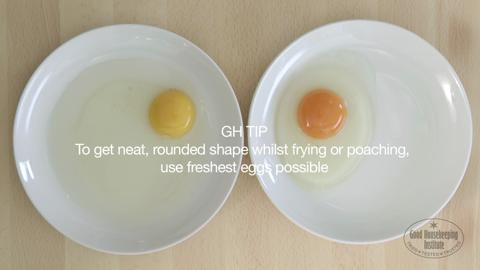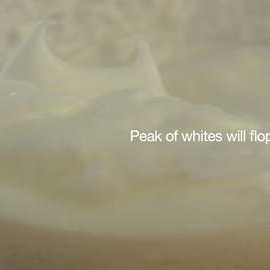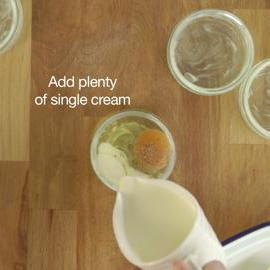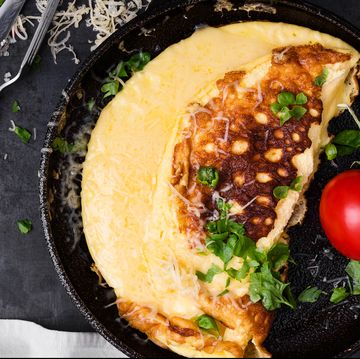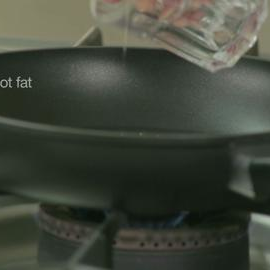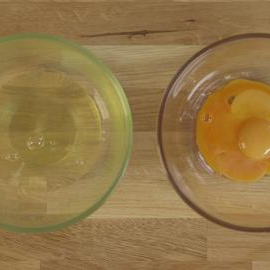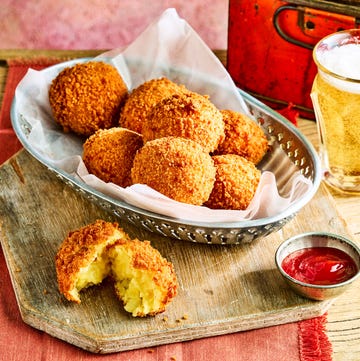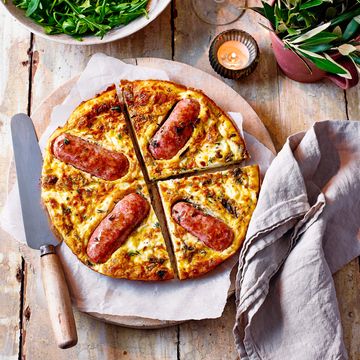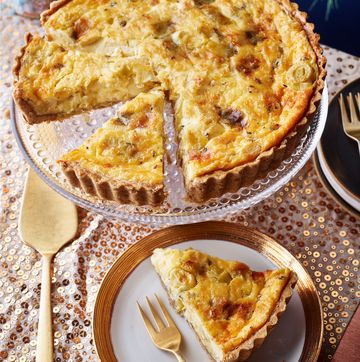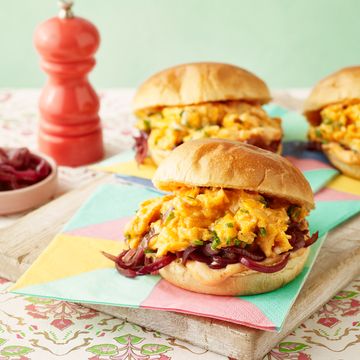- The freshness of an egg cannot be judged from its outer appearance, so try to always purchase eggs from a shop with a high turnover, buy only what you need for the week, rather than bulk buy for long storage and if buying from a supermarket, check the best before date printed on the egg shell.
- After cracking your egg, you’ll see that a fresh egg has a rounded and domed yolk. The white is in two distinct parts with a thick, viscous layer around the yolk and a thinner, watery outer layer. An older egg will have a flatter yolk and the egg white will become runnier since the proteins have begun to break down.
- There is an air pocket in the rounded end of an egg - this amount of air inside an egg determines age and quality – the more air inside, the older the egg. To test whether an egg is fresh, place in a glass of cold water: if it sinks to the bottom of the glass to a completely horizontal position, it is fresh because the air pocket is tiny. If it tilts, it may be up to a week old. If it floats completely towards the top of the bowl it is well past its prime, and should be binned.
- Eggs can easily take on other flavors from foods nearby (due to porous shells), so keep them away from strong-smelling foods. The easiest way is to keep them in the box in which they are sold. Store them pointed end downwards so that the air pocket in the rounded end stays at the top.
- How you store your eggs depends on how you like to cook your eggs. If you frequently poach eggs, store them in the fridge as cold eggs hold their shape best. Otherwise, feel free to store your eggs out of the fridge (out of direct sunlight). Eggs sold in the UK are not washed and retain their natural protective coating (called the 'cuticle') which helps protect the egg against contamination.
A crack team of highly skilled food content producers, the GH Kitchen Team are Good Housekeeping’s resident recipe developers and all-round food obsessives. GH Kitchen Director Sarah Akhurst is our resident hosting pro and loves nothing more than putting on a foodie feast for friends. Senior Cookery Writer Alice Shields is a former pastry chef and baking fanatic who loves making bread and would have peanut butter with everything if she could. Lover of all things savoury, Senior Cookery Writer Grace Evans can be found eating nocellara olives at every opportunity, and will take the cheeseboard over dessert any time. With a wealth of professional kitchen experience between them, they’re dedicated to ensuring every Good Housekeeping recipe is the best it can be, so you can trust they’ll work every single time.
